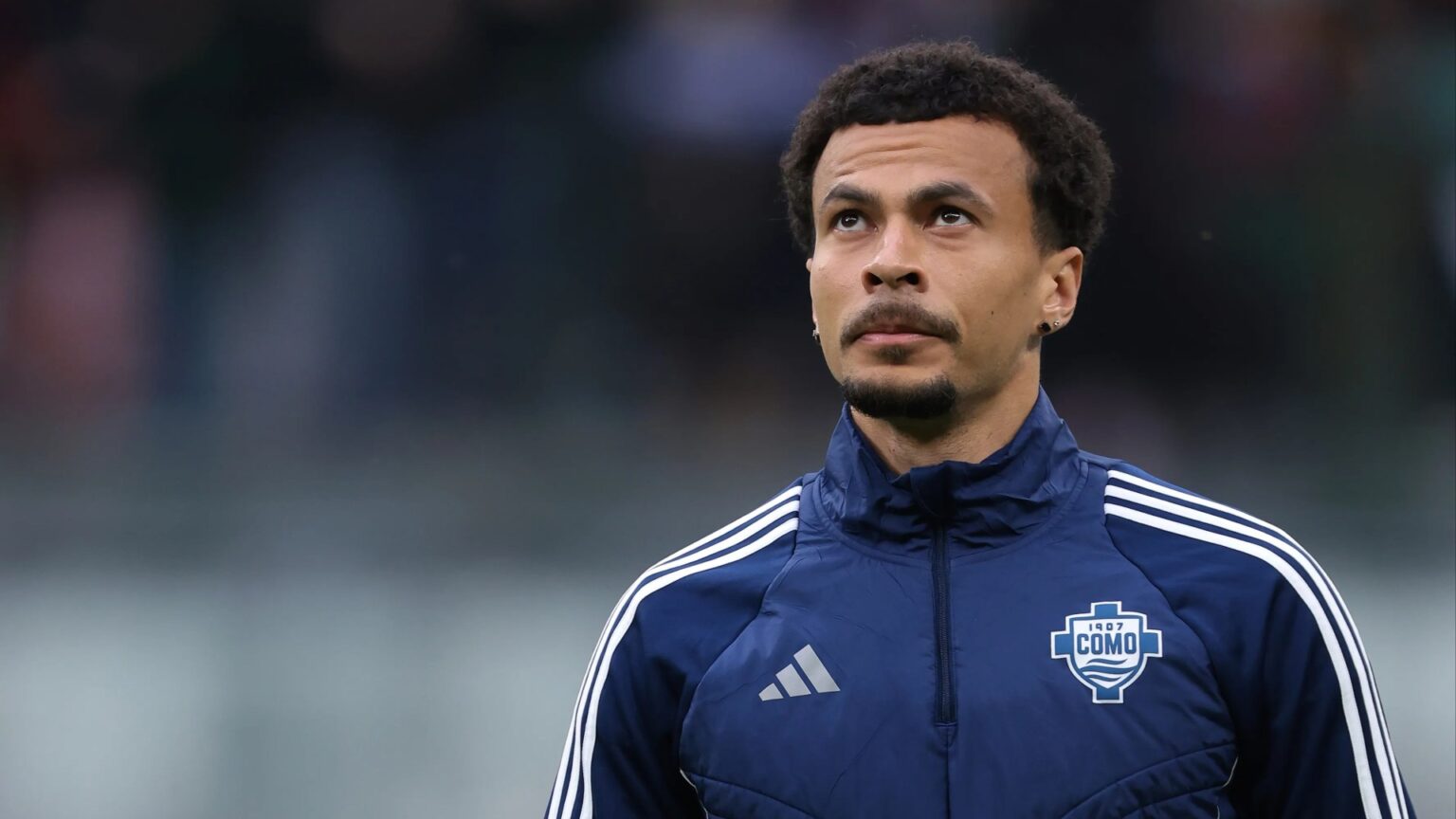NEWS that Dele Alli’s career as an elite footballer may be over comes as no great surprise but with genuine sadness.
And ever since Dele revealed the full extent of his traumatic childhood, in an interview with Gary Neville, there should only ever be empathy and understanding about the way his career has nosedived.
Yet Dele’s career trajectory — five outstanding seasons, followed by a long descent — is not unusual and will become more commonplace.
Because elite modern football is no country for either free spirits or troubled souls.
Dele is adamant he wants to continue his career having been banished from the squad at Italian club Como after one Serie A appearance — a nine-minute cameo as a sub in March which ended in a red card.
But at the age of 29 — and six years after the last of his 37 England caps — Dele is surely finished at the top level.
An increasing number of players burn brightly for a short period of time before they either implode or suffer serious downturns.
From Dele’s generation of England players alone, Marcus Rashford, Jack Grealish, Raheem Sterling, Jesse Lingard, Ross Barkley, Jadon Sancho and Harry Winks were all regular internationals who, for various reasons, have struggled to last the course.
The intensity of the modern game, with its demand for extreme athleticism and utter mental dedication, means that those like Harry Kane, who play at the top for ten or 15 years, are going to become the exception rather than the rule.
Add in the increasingly congested fixture list for leading players — the nonsense of the Club World Cup only adding to it — and many will break down physically as well as psychologically.
It is easy to forget quite how good a player Dele was.
Not many players score 18 goals in a Premier League season from midfield, reach a World Cup semi-final and a Champions League final by the age of 23, win the PFA Young Player of the Year award as well as Match of the Day’s Goal of the Season.
In that Neville interview, in 2023, Dele revealed he had been sexually abused as a six-year-old and was dealing drugs by the age of eight.
He is estranged from both of his birth parents and was adopted by a school friend’s family as a teenager and has more recently been in rehab to tackle addictions.
During his early years at Tottenham, Dele was well looked-after by a supportive and tight-knit dressing room under the guidance of Mauricio Pochettino.
Those Spurs team-mates were hugely fond of Dele — regarded as a likeable but wayward kid rather than a bad egg.
They knew many of his issues and there were many positive influences on him, especially Eric Dier.
Dele’s career trajectory — five outstanding seasons, followed by a long descent — is not unusual and will become more commonplace. Elite modern football is no country for either free spirits or troubled souls.
Yet since Pochettino’s sacking in November 2019, Dele’s career has been in a downward spiral from Jose Mourinho to Everton to Besiktas to Como — and a serious renaissance now seems highly unlikely.
Other elite players who have crashed and burned may also have suffered extreme personal circumstances.
Others are simply not built with the one-track mind now essential to a lasting career at the top.
Up until the 1990s, it was perfectly possible for elite footballers to enjoy sex and drugs and rock-and-roll lifestyles and still enjoy sustained success.
Now that levels of athleticism have increased, players’ lifestyles are monitored so stringently by their clubs and their chances of a sly night out are wrecked by the advent of camera phones and social media, free-spirited players like Grealish will struggle.
Nothing can be done about this trend. The internet won’t be uninvented and ultra-professionalism will never go into reverse.
In an ideal world, every top footballer would have the mindset and stable background of Kane.
In theory, they should all be able to live like monks for 15 years and enjoy their multi-million-pound rewards once they hang up their boots.
Which is all well and good until you factor in the fact they are fallible human beings, often from tough backgrounds, who are subjected to huge temptations.
Being a professional footballer in the 21st century is far more lucrative, but far less fun, than it was in the 20th.
Addictions suffered by elite footballers are now less likely to be booze and recreational drugs but online gambling, gaming, porn as well as sleeping pills — secretive, lonely ways to alleviate pressures and problems.
Nobody is playing violins for these young multi-millionaires.
But, in its move towards extreme professionalism and 365-days-a-year seasons, football will lose more wonderful players like Dele.
Read the full article here

